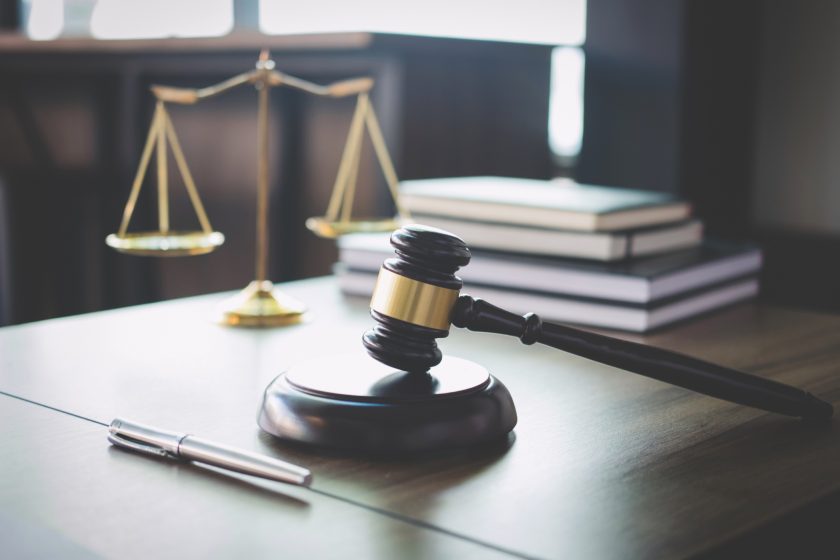Find the Best Lawyers for Debts Recovery Tribunal Litigation in Chennai, Tamil Nadu, India. ASK Advocates Law Chambers offers the Best Legal Services for DRT Cases.
Best DRT Lawyers
Debt Recovery
Debt recovery is significant on the ground that it is connected with the credit score. For example, a charge card balance keeps on going unpaid, and a leaser employs an outsider. Of course, it is known as an assortment administration, to concentrate on gathering the cash.

On the off chance that you are being reached by the administration, it implies that it is a record having on a credit. And at present have misconduct. These misconducts get answered to the credit authorities.
Harming your financial assessment, which can possibly hurt any future loan chances.
RDDBFI Act, 1993
RDDBFI Act, 1993 is an Act to accommodate the foundation of Tribunals. (Recuperation of Debts Due to Banks and Financial Institutions Act). For quick arbitration and recuperation of obligations because of Banks and Financial Institutions. And for issues associated therewith or accidental thereto. Attorneys for RDDBFI Act will help you to resolve all the DRT issues.
SARFAESI Act, 2002
SARFAESI Act, 2002 (Securitisation and Reconstruction of Financial Assets and Enforcement of Security Interest) is an Act to direct securitization. In fact, it is also to regulate financial resources. Moreover, the requirement of security interest and for issues associated with therewith or accidental thereto. Contact Advocates for SARFAESI Act to protect the assets in Chennai, Tamil Nadu, India.
Top Advocates for Debt Recovery Tribunal
The law ensures a fair debt recovery process. This Debt recoveries are regulated by the SARFAESI Act. In India RDDBFI Act,1993 regulates the tribunal. The Debt Recovery Tribunal was established. Essentially corporate bodies are depending on different measures to recover their unpaid cash. Either by adjudicatory or non-adjudicatory strategies. Just Search and Choose Top Advocates for Debt Recovery Tribunal in Chennai to resolve all the issues.
DRT Lawyers Legal Consultation
From an advance, credit line, or records receivable either to a limited extent or entire. when the obligation can’t be recouped, it turns out to be a terrible obligation. Furthermore, when the venture or the benefit that becomes owed to reimburse obligation. It can’t do so any longer, there emerges a need to recuperate obligation. Get a Legal Consultation from Top DRT Lawyers to avoid Legal action by Banks and NBFCs.

Strategies for Debt Recovery
There is a lot of strategies to recoup obligation. Some are named lawful, while others are non-legitimate. Non-lawful strategies may include calling the customer or client for genially. Or recruiting commission operators for recouping obligations. Lawful techniques for obligation recuperation include the following:
- Civil Remedy
- Criminal Remedy
- Out of Court Settlements
Civil Remedy
For common, a wronged gathering can send a lawful notification to the account holder. The purpose is to start a common suit for obligations due or harms.
Criminal Remedy
An oppressed can document an FIR in the neighborhood police station. With a purview over the issue, when the case is serious. Post the FIR a criminal case will be documented and the procedures will be gotten underway. Approach Criminal Lawyers for DRT cases to get bail or an Anticipatory bail
Out of Court Settlements
For a speedy and productive way. Under this classification, the second party can resolve the debate. and recuperate the cash through intercession, mediation, or arrangement.
Legal provisions for Debt Recovery Tribunal
Recuperation of cash/obligation in India can end up being a burdening task. Choosing on which law is appropriate can be a significantly harder exercise. The laws material for recuperation of cash in Indian ward are as per the following:
- Indian Contract Act, 1872
- Negotiable Instruments Act, 1881
- Code of Civil Procedure, 1908
- Insolvency and Bankruptcy Code, 1905
- India Penal Code
- Recovery of Debts Due to Banks and Financial Institutions (RDDBFI Act), 1993
- Securitization and Reconstruction of Financial Assets and Enforcement of Security Interest (SARFAESI)Act, 2002
- Arbitration and Conciliation Act, 1996
Indian Contract Act, 1872
The purpose behind debt groups in India is to a great extent disgrace of an agreement. Or to state, the majority of the obligation recuperation matters begin from a Contract. The areas that can be summoned dependent on the realities and conditions of the case. by the abused party according to Contract Act are as per the following:
- Section 17: Fraud
- Section 18: Misrepresentation
- Section 124: Contract of Indemnity
- Section 126: Contract of Guarantee
- Section 73: Compensation of Loss or Damage by breach of Contract
Negotiable Instruments Act, 1881:
This Act gets relevant in instances of dishonour of cheque. Under Section 138 for disgrace of bill of trade or promissory note. Under Negotiable Instruments Act, for recuperation of obligation. Initially a lawful notification is given and from that point procedures are started
Code of Civil Procedure, 1908:
Under Order 37, a synopsis suit can be petitioned for recuperation of cash for rapid removal of cases
India Penal Code:
If obligation to the oppressed get-together because of any of the accompanying reasons. the gathering can approach under the Indian Penal Code.
- Criminal Breach of Trust, Section 405 and Section 406
- Deceptive misappropriation of property, Section 403
- Cheating, Section 415 and Section 417
Insolvency and Bankruptcy Code, 1905:
This Act gets appropriate in situations where the party gets bankrupt or indebted.
Recovery of Debts Due to Banks and Financial Institutions (RDDBFI Act), 1993:
DRT: Debts Recovery Tribunal Litigation- This becomes material when the oppressed party is any money related foundation. May be like a bank or any private fund corporation. And accommodates foundation of Tribunals for mediation and obligation recuperation.
Arbitrated obligation recuperation cases
The 1993 RDDBFI Act made Debt Recovery Tribunals (DRTS) to arbitrated obligation recuperation cases. This was done to move cases out of common courts. With diminishing time taken for obligation recuperation, and for giving specialized ability. This was planned for helping banks and budgetary organizations in recouping extraordinary obligation.
High pendency of cases before the DRTs
Throughout the years, it has been seen that the DRTs don’t consent to the specified time allotment. This has brought about deferrals in removal, and a high pendency of cases before the DRTs.
Free the overabundance from cases
DRT: Debts Recovery Tribunal Litigation- The pending cases before the DRTs expanded from 43,000 to 70,000 between March 2013 and December 2015. With a normal removal pace of 10,000 cases every year. It is assessed that these DRTs will take around six to seven years to free the overabundance from cases.
DRT officials liable for obligation recuperation
DRT: Debts Recovery Tribunal Litigation- Experts have additionally seen that the DRT officials, liable for obligation recuperation. There is a need for involvement in managing such cases. Further, these officials are not satisfactorily prepared to mediate obligation related matters.
Presiding Officers of DRTs
The 2016 Bill proposes to expand the retirement time of Presiding Officers of DRTs. And takes into consideration their reappointment. This will permit the current DRT officials to serve for longer timeframes.
Securitization and Reconstruction of Financial Assets and Enforcement of Security Interest (SARFAESI)Act, 2002:
This Act has the goal to direct securitisation. And reproduction of money related resources by foundation of Asset Reconstruction Companies.
Arbitration and Conciliation Act, 1996:
For the situation of a close to a discretion provision. Or when the gatherings agree to the reception of assertion as a method for question goals. Section 7 of Arbitration and Conciliation Act can be conjured for an out of court settlement.

Contact Debt Recovery Tribunal Advocates
Call or WhatsApp: +91-9994287060 between 8.00 am to 8.00 pm to make an appointment will the Best Advocates for Debt Recovery Tribunal Cases. Get Legal Advice and Legal Consultation for better Guidance and Litigation services. People who are far away from Chennai can get Online Legal Support through IMO, email, skype, Whatsapp, or any other communication tool.
- Follow Us on Facebook: https://www.facebook.com/askadvocates/
- Follow Us in Twitter: https://twitter.com/askadvocates
- The Insolvency and Bankruptcy Code, 2016
- Confidently Pursue Debt Recovery: Expert Counsel by Your Side
- Recovery of Money Suits: The Common types and the Best Remedies
- Debt and Credit Card Loan Recovery Harassment
- Bankruptcy Law Advocates in Chennai for Debt Restructuring



